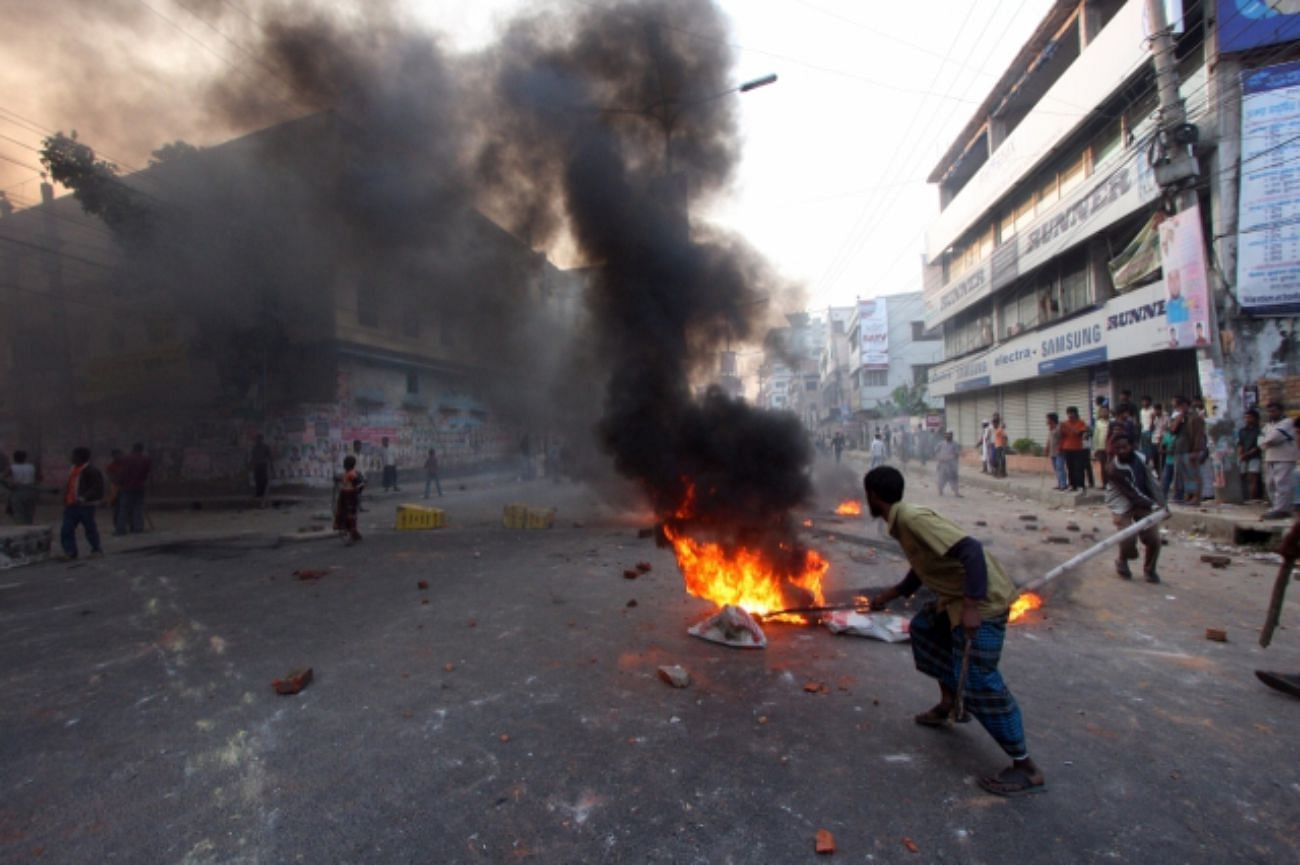Free Election
Free Election
Antidote to politics of annihilation

WHENEVER a minimum democratic environment prevailed and people got a chance to participate in political activities, including electoral politics, people have celebrated the event. In the post 1947 period, voting for Jukto Front in 1954 and for autonomy in 1970, participation in the Liberation War, and overthrowing of the dictatorial regime in 1991 -- all these denote people's power and also rejection of extremism.
Another notable feature of free electoral politics, not only in Bangladesh but also in India and Pakistan, is the strength of bi-polar politics. It has flourished in this part of the world whenever people have got a chance to participate in politics. We know about politics of Congress and Muslim League during British period, Muslim League (ML) and Awami Muslim League (AML) during the early period of our failed statehood with Pakistan, Awami League (AL) and National Awami Party (NAP), and AL and Bangladesh Nationalist Party (BNP) since late 1970s and early 1980s. In terms of leading personalities in this bi-polar politics, it has been Gandhi and Jinnah, Bhashani and Mujib and Khaleda Zia and Sheikh Hasina since early 1980s. One outcome of the bi-polar politics has been not only weakening of the working class-based parties of the left but also the religion-based parties of the right.
Danger from rejection of free electoral politics
What we are witnessing in today's Bangladesh is a vivid exposition of the consequence of discarding the path of free electoral politics. Whenever political dispensation moved away from a multi-party to a single party system, it gave rise to violence.
Whereas the Fourth Amendment of the Constitution ended multi-party system, the Fifteenth Amendment has abolished any chance of holding free election in the country. If there is ever to be a free election under a ruling party, it must be preceded by removal of all partisan appointments at all levels of the administration.
The rejection of free election, as manifested in January 5, 2014, has created the present situation. As a result, a centrist political party is being pushed to the extreme. At the same time, the BNP cannot resort to underground politics or to violence to extract political demands. The moot point is that the 15th Amendment and January 5 elections have created the flux, and, if not corrected, will harm the whole nation, and soon politics will also come to be controlled by extremists.
This is particularly dangerous in the contemporary global situation of War on Terror on the one side and suicide bombers on the other. As a Muslim-majority country, political leaders of Bangladesh need to adopt utmost caution to steer the country away from the suicidal course.
Way Out is simple: Holding free election
Fortunately, discarding this path is rather easy in Bangladesh. The tradition of free electoral politics has kept people of Bangladesh happy despite the many problems. People of this country are politically happy if they can vote freely and participate in political activities and they are economically happy if they are allowed to do their work to earn a living. No matter how strongly AL campaigns to make people believe that there has been a free and participatory election on January 5, 2014, the people, and the international community too, do not believe that was so. They are more for an inclusive election because without an election and a government elected through a participatory election, things might get even worse.
The PM as a politician knows people's mind, so she did not hesitate to go to console a grieving mother. Too bad, it did not work out, as people would have loved to see the two leaders sitting together. But it is still possible. Another move is necessary on the part of the PM, not just for consoling a grieving mother but for stopping the mindless attacks on innocent people by the extremists on both sides and even by the law-enforcing agencies.
Allowing politics to slip away from moderate leaders like Khaleda Zia or Mirza Fakrul Islam Alamgir will strengthen the hands of the extremists. Politics of annihilation will not work in this country. It is evident in the fact that AL could come back to power after 21 years of disarray despite unimaginable tragedy of August 15 and with the BNP becoming even stronger after Ziaur Rahman was assassinated. This reemergence simply tells us that people of this country are essentially followers of two major political camps represented by AL and BNP. I entreat the Honourable Prime Minister not to listen to those who are asking for “a second liberation war”!
The writer is Professor at North South University (NSU).